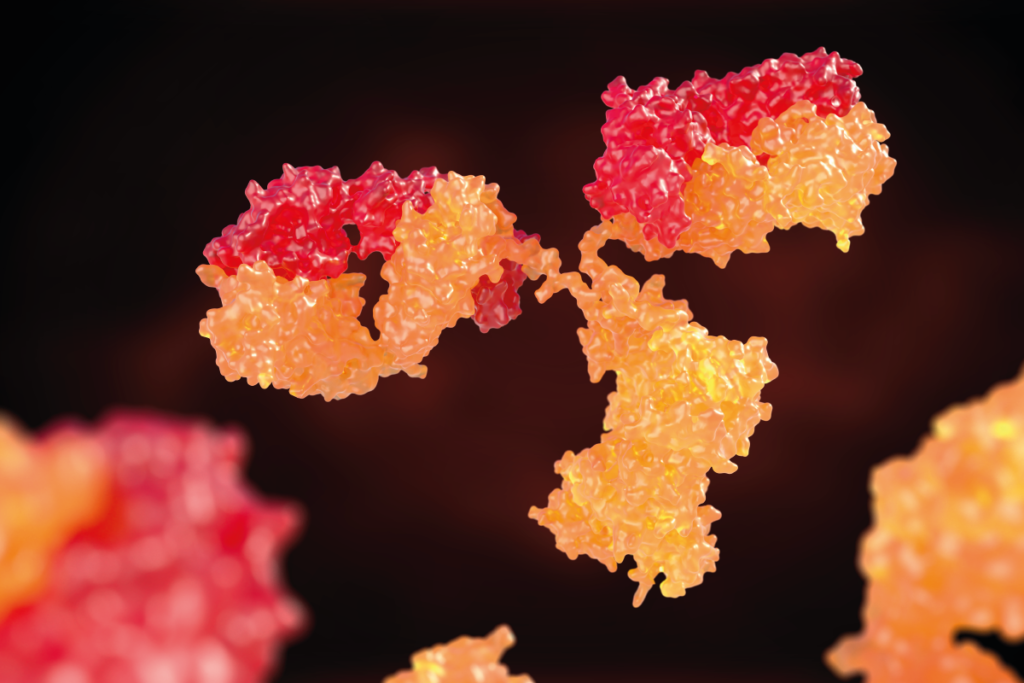In recent years, studies have shown promising results from the use of CAR-T cells in the treatment of cancer patients. Following the advancements of this type of treatment in patients with various hematologic cancers, CAR-T cells, or T cells genetically modified to express a chimeric antigen receptor, have been studied as a potential innovative therapy for patients with autoimmune diseases.
Traditionally, T cells are responsible for identifying and destroying abnormal or infected cells in the body, but in autoimmune diseases, these cells mistakenly attack healthy cells of the body. The idea behind using CAR-T cells in the treatment of autoimmune diseases is to reprogram T cells to target their activity only against autoimmune cells, thus sparing healthy cells of the body. To achieve this, researchers have sought to identify specific antigens present on the surface of autoimmune cells that can be targeted by CAR-T cells.
In preclinical and clinical studies, CAR-T cells have shown promising results in controlling autoimmune responses in animal models and in some human patients. Furthermore, it has been observed that these cells can be modified to have a more regulatory action, promoting immunological tolerance instead of a pro-inflammatory response.
However, some challenges still need to be overcome, such as the safe identification of suitable antigens, the regulation of CAR-T cell activity to avoid adverse reactions, and the optimization of conditions for the persistence and activity of these cells in the body.
Already Conducted Studies
In September 2022, researchers described five patients with refractory systemic lupus erythematosus (SLE) who were being treated with CAR-T cells and achieved disease remission without the use of medication. At the time of the study’s publication—17 months after treatment—no patients had relapsed. The authors described the seroconversion of antinuclear antibodies in two patients followed for the maximum study period, “indicating that the elimination of autoimmune B cell clones can lead to widespread correction of autoimmunity,” they wrote.
In another case study, published in June of the same year, researchers used CAR-T cells targeted to CD19 in a 41-year-old man with refractory antisynthetase syndrome, progressive myositis, and interstitial lung disease. Six months after treatment, there were no signs of myositis on magnetic resonance imaging, and a chest computed tomography scan showed complete regression of alveolitis.
Diabetes Mellitus
Type 1 diabetes mellitus (DM1) accounts for about 10% of diabetes cases. In this type of diabetes, the immune system attacks the cells that produce insulin. Thus, production is insufficient to allow glucose to enter cells, remaining in the bloodstream, which increases blood glucose levels. The main pathophysiological phenomenon associated with this type of diabetes is insulin resistance.
Insulin replacement therapy is currently the cornerstone of treatment for DM1; however, insulin treatment does not improve disease progression, as dysregulated immune response and inflammation continue to cause further degradation of pancreatic β cells. Several preclinical studies have demonstrated that redirecting antigen-specific CAR-T cells, especially regulatory CAR-T cells, toward pancreatic β cells, could prevent the onset and progression of diabetes in diabetic mouse models.
Although the use of CAR-T cells for the treatment of autoimmune diseases is still in the early stages of study, the advances made so far point to great potential for this therapeutic approach.
With further research and development, it is possible that the use of CAR-T cells will become an important treatment option for patients with autoimmune diseases, offering a new path for controlling dysregulated immune responses. These studies, although experimental, already demonstrate that CAR-T cells can be a technology that brings positive impacts to many people who suffer from previously incurable diseases.
Celluris: Pioneer in CAR-T Technology
Celluris was the first company to develop CAR-T technology in Brazil. A company specialized in cell therapy, it remains the one that is most dedicated to the field of CAR-T therapy studies, working to offer personalized treatments to patients. To learn more about this therapy, visit the website.


